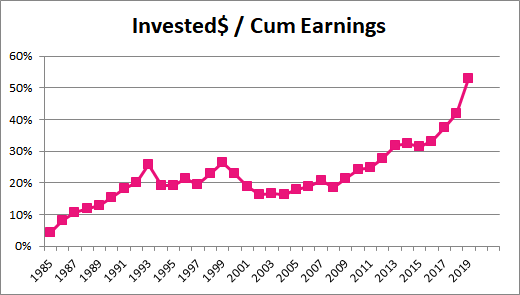LRDave
Thinks s/he gets paid by the post
I'm like Jimmy Buffett - "I made enough money to buy Miami, but I pissed it away so fast."
If you don't count the present value of our two COLA'd pensions, when we retired in 2019 our net worth was about 50% of our lifetime earnings.
Gumby looks at 40


